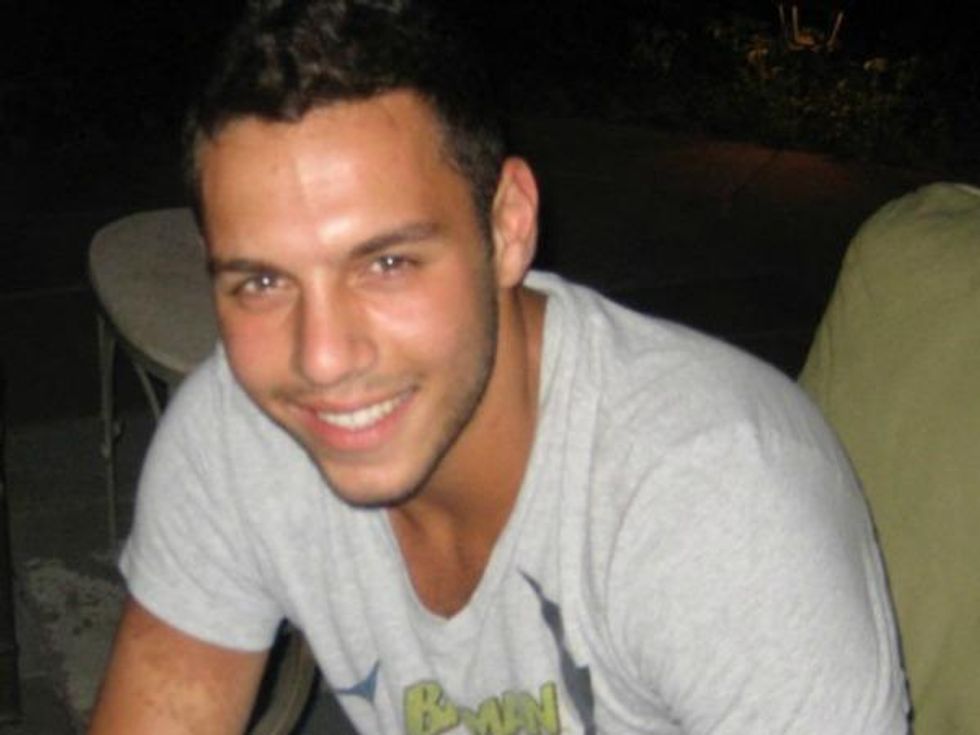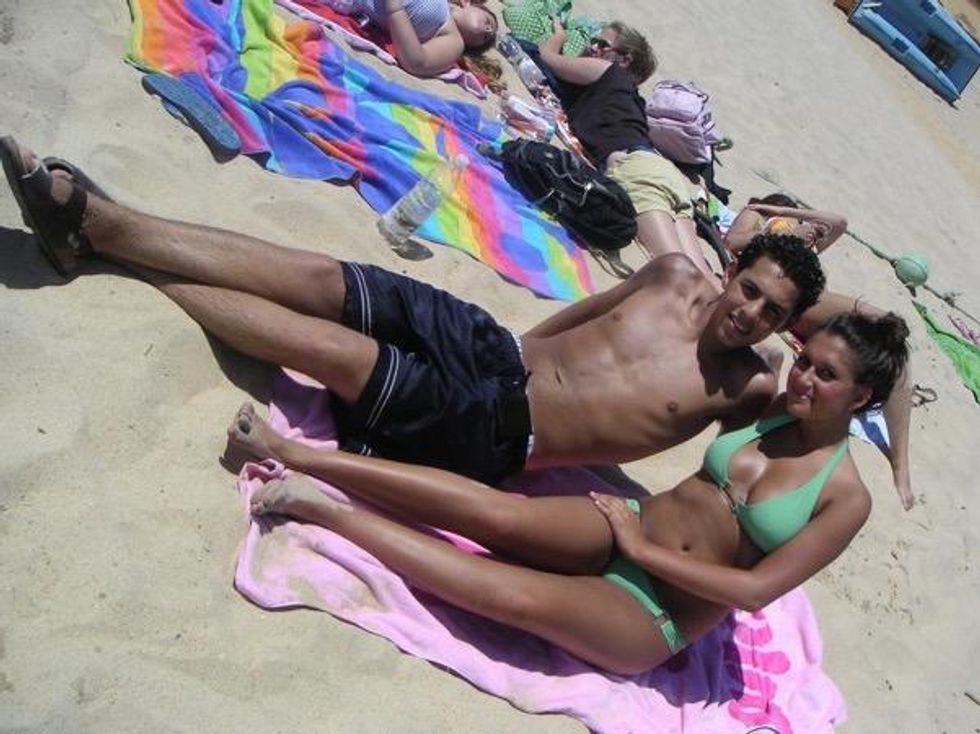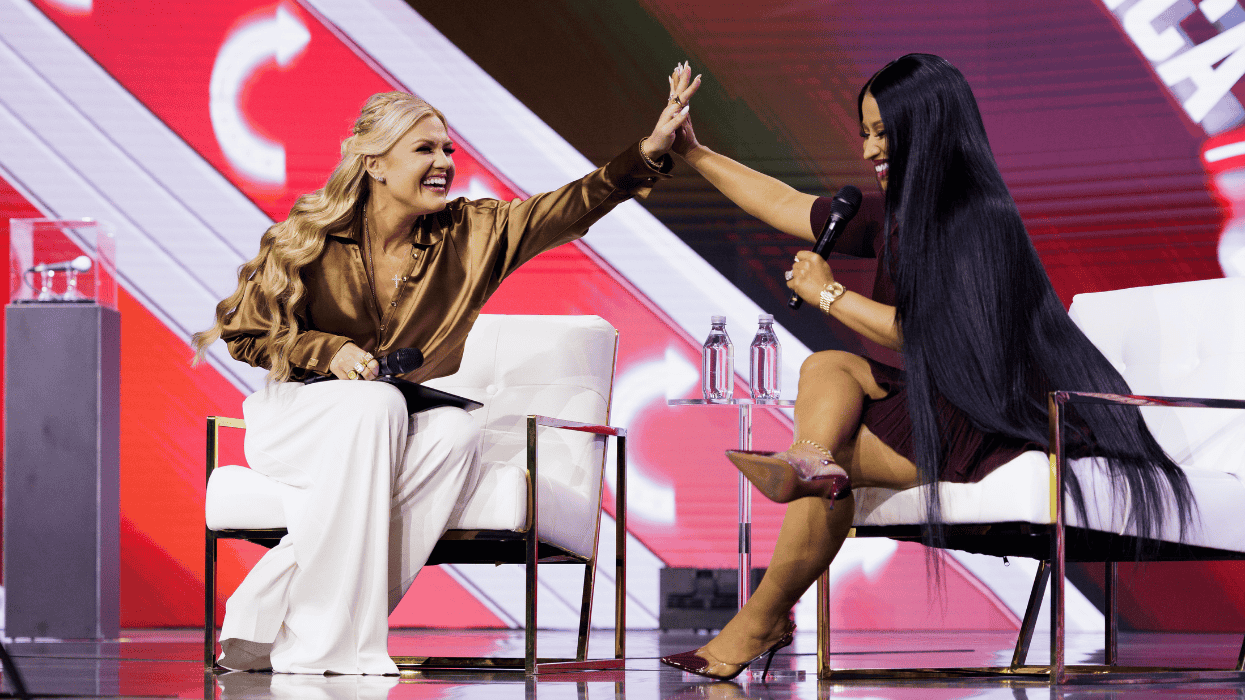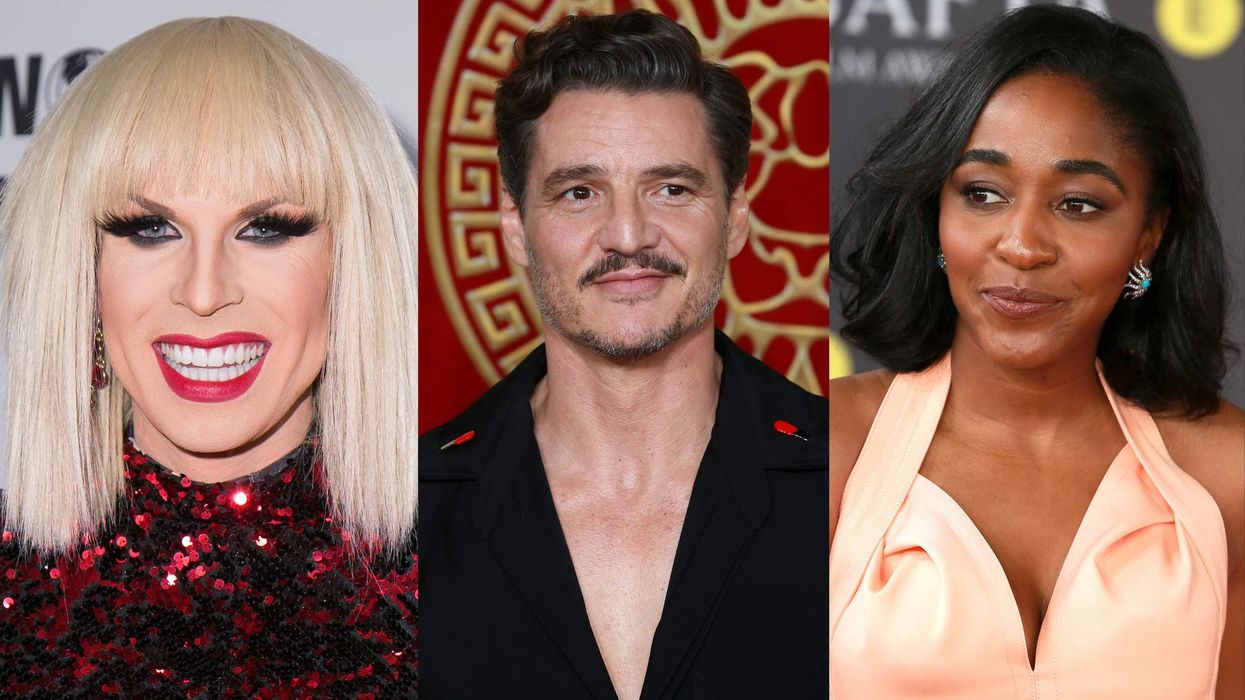Conversion therapy (or ex-gay reparative therapy), is the attempt to turn LGBT people straight through intensive therapy, often resulting in deep psychological damange. Although denounced by every major medical organization in the United States, only New Jersey, California, and Washington, D.C., have effective bans on its use on minors. Following the tragic suicide of Leelah Alcorn last December, a White House Petition was started calling for President Obama to ban the practice nationwide. While there are practical impediments to such legislation, Obama has come out strongly against the practice, promising to work with states to push for its end. Bills are progressing through more than a dozen states at the moment, with those in New York and Oregon most recently gaining traction.
Today, Mathew Shurka is an activist working to end conversion therapy and help victims heal. He underwent therapy for five years, between the ages of 16 and 21. Here, he shares his experience:
I was born and raised in Great Neck, New York, a suburb of New York City, and I was raised in a Jewish household. We weren't very religious, but we were culturally Jewish, which I guess is typical--I'm half Middle Eastern, half American, and in the Middle East family life is more important than anything else. I came out at 16 to my father. I basically said, "these are what my feelings are," and he said that he'd love me no matter what. Almost immediately, he began looking for a therapist, because he was scared. So even though in our conversation, he said he'd love me no matter what, he started having second thoughts like, Oh my God, what does this mean for my son? What does this entail? A part of him thought, if I can have my son be straight, I want him to be straight. He didn't hide that.
Eventually, he came across a conversion therapist who said, "There's no such thing as homosexuality, it's a psychological condition, it comes from a trauma, and because your son is so young, this is the best time to heal him. He's not had sex yet, he's young, and with a person in his condition, you should start seeing results in as early as six weeks." So I began. From my point of view, I was scared, but here was my father telling me he wants me to try this, and he's telling me that the doctors have told him that this was the right move.
I had only told my father, but there was a larger discussion that my father had with my two sisters and my mom, which I didn't know about. My mother and my sisters, they didn't feel one way or the other about it. They saw how much my father wanted this, and that he had found a doctor who said homosexuality isn't real, so they were willing to go along with it in the beginning.
Conversion therapist believe that everything comes from a trauma. They're very vague about what it is, so it could be something as simple as father and son not getting along, or an overbearing mother, to the extremity of great child abuse or molestation. Somewhere in this range of what could happen, the child develops a psychological void. It's about their masculinity, and then when they hit puberty, the void becomes sexualized and they start to seek gay sex or do things of a gay lifestyle as a way of filling in this void. And they tell you that gay people live this loveless, hopeless life of having gay sex and using men to fill a void when it's not real. They say that you're really heterosexual, and just suffering from this condition. And they said that I'd have a higher chance of suicide if I came out of the closet, because gay men have terrible lives, they're not accepted. So they're using all these facts as a reason why people need to become straight. I was a terrified. I was 16-years-old, and this became life or death for me. Someone is saying that I can have the same feeling I'm having for guys for girls, all it takes is a bit of therapy. So I was like, Ok. I'm all in. And I really did give it my best.
I began therapy and the first steps are to spend as much time with guys as possible, while simultaneously spending as little time with girls as possible. That included my mother and my sisters. They didn't know that my therapist was telling me to do this. My father knew did, however. So, I'm avoiding them so I don't pick up any of their feminine behaviour, and I'm also keeping them distant so they can remain the mysterious opposite sex. At the same time, I'm spending as much time at school with the boys. The therapist is strategically guiding me to be friends with all the guys and fit in and have this "healthy male bonding," as they call it--by which they mean, non-sexual. And it's actually working, I'm becoming friends with all the guys, which is something that I'd always wanted, to be popular.
Part of therapy was dealing with same-sex attractions as they came up. I would be given techniques to deal with it. First, you had to learn what you were attracted to, and whatever you were attracted to was something that you disliked about yourself. They're giving me tools of masturbation to pornography as a way to overcome these feelings. So, if I were to get an erection while at school, they were telling me that I should go to the guy's bathroom to masturbate, to get rid of the sensation. They didn't want me letting that sensation be associated with my the attraction to boys. They'd rather me go masturbate, get rid of these thoughts that I had, and to try as much as I could to associate my erection or my orgasm to female imagery. So I was constantly looking at female pornography.
All the while, I'm trying to find this trauma, which is the aim of therapy. I never found mine. I kept digging and digging in my past, finding reasons to be angry. Maybe something my mom did, or my dad did. In the beginning, I blamed my mom and my sisters a lot, so coming home was not a safe place to be. I didn't physically separate from my mom, so every morning she would make me breakfast, I'd come downstairs and eat it, I'd walk out the door, and not say a word to her. That went on for three years, not talking to her. And it was infuriating because she would try to talk to me and I would have to throw a tantrum. I was the one policing my home, I was the one that was enforcing it, because I thought it was life or death. I was being told that something happened in my childhood and I was blaming my mother, and every time my mother talked to me I would yell back at her, because I was so angry. I was like, Do you know how hard I'm trying to overcome this? You're ruining it every time you try to talk to me.
There was a point where I was able to have sex with women. And I was like, Wow, I'm actually having sex with women, I must be a heterosexual. But my anxiety and stress were just growing and growing. I started having panic attacks. I was contemplating suicide. And that all interfered with my ability to go on sleeping with women, and so my therapist told my dad to get a prescription for Viagra for himself and give them to me. I think that was the most harmful part because, psychologically, I felt that I was disabled. I was 18 years old, I was taking a pill in the bathroom, there's a woman in the room next door, I'm supposed to have sex with her, just so I can get the approval of my father or my therapist or my community.
I ended up leaving my first therapist when I was 21, because I found out that he had lied to me, that he had worked with my father to end a relationship I had with another closeted guy. I also stopped talking to my father at that point. But after six months, I actually enrolled myself again, this time with another therapist. Because I felt that, on top of everything, I had failed at therapy, because I was still attracted to men. But then I started to notice a pattern among therapists, that most of them were gay men who said that they'd changed themselves, and a lot of them said that they were trying to get married. They all had the same problems, and I started to challenge them, and then I finally gave it up later that year. It took two more years and a lot of therapy before I was able to fully come out at 23.
Today, my advocacy focuses on reconciliation--because having undergone conversion therapy for so long led to deep strains with my family. Today, I'm closer than ever with my mother, my sisters, and my father, but not everyone knows how to overcome their pasts.
I was actually at a party when President Obama made his announcement, when he came out against conversion therapy. I was trying to be a good guest and was ignoring my phone, so I didn't know what had happened for about an hour. When I finally realized, I almost couldn't breath. And then I just started crying. It was a historic moment for love and acceptance, not just for the LGBT community. When a person like the president makes a stand, the whole world hears it. I think of where I was three years ago when I came out, and now the president is saying that he's going to support me, that he's going to end this. I was proud of him. I think I told a friend that this is what the beginning looks like, the beginning of a world of love and acceptance. This is where it starts.
































